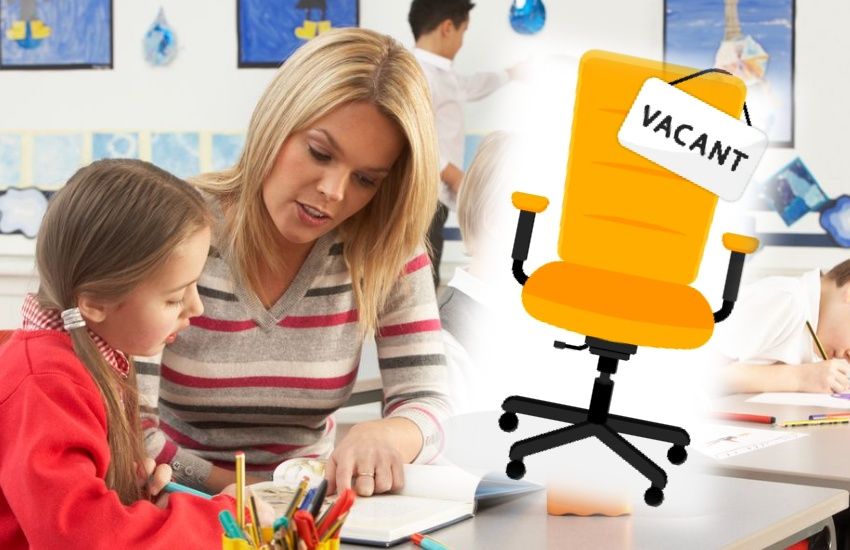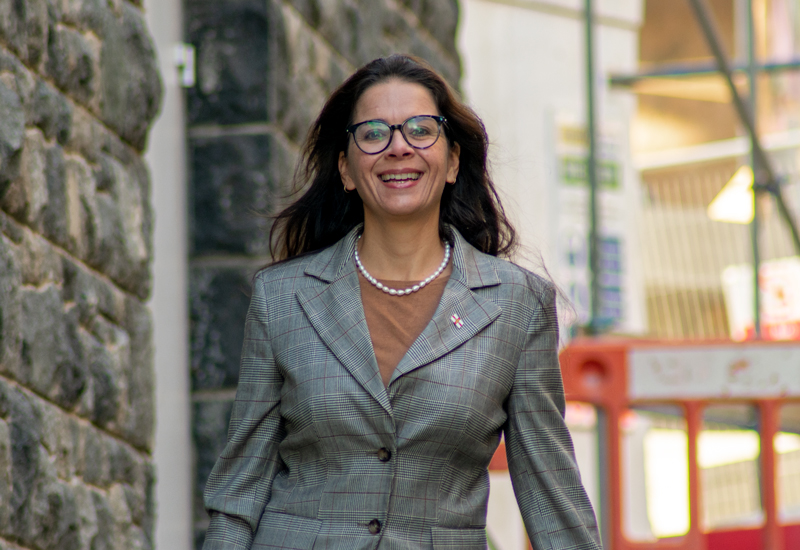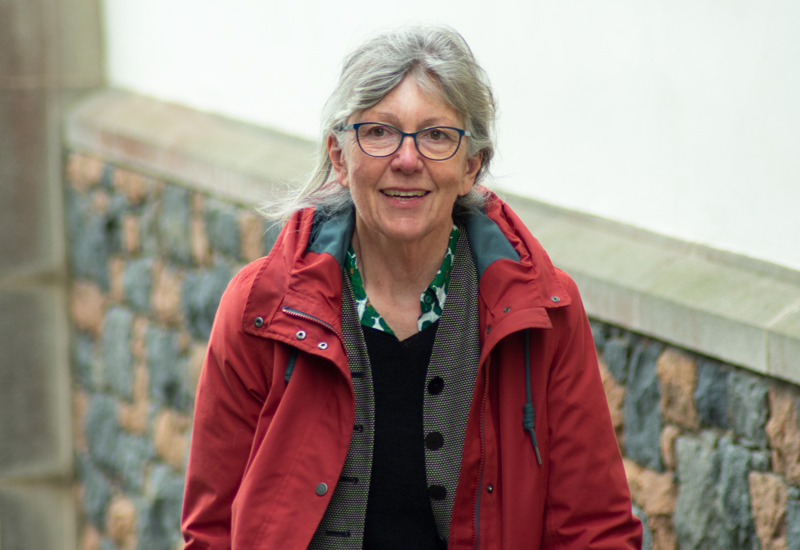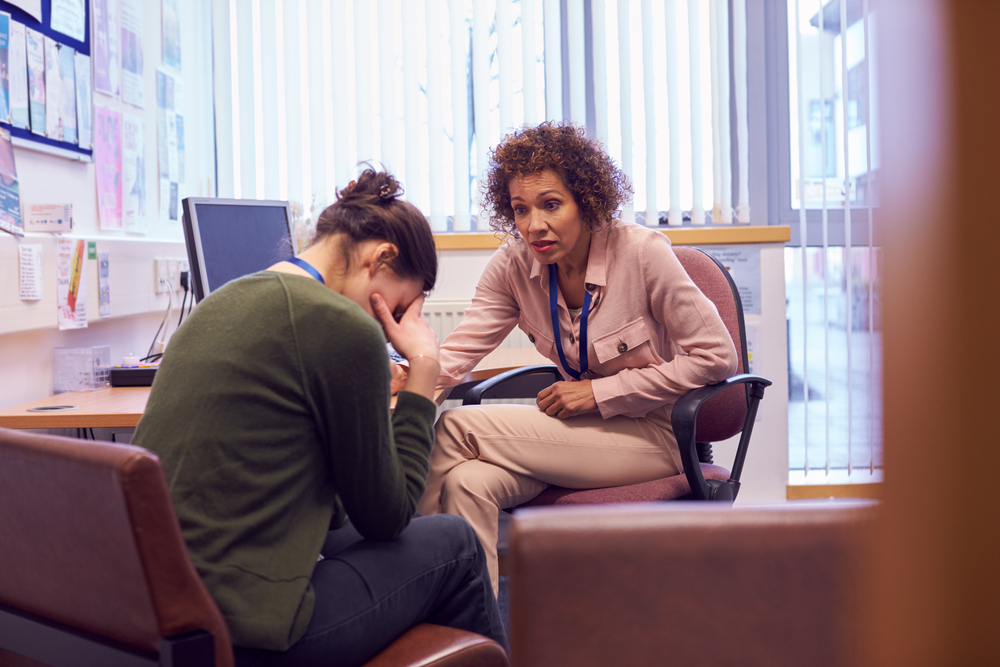


A fresh recruitment campaign is under way to try to fill teaching posts in primary schools which remain vacant for the new school year in September.
There are 24 teacher vacancies to be filled in States' primary schools this summer. Appointments have been made to just over half of them, but 10 vacancies remain.
Five of the remaining vacancies are for fixed-term temporary roles; three are for part-time permanent roles; and two are for full-time permanent roles, one of which was subject to interview this week.
The Committee for Education, Sport & Culture said it was abnormal to have this number of unfilled vacancies in primary schools at this time of the year, around 11 weeks before the start of the school year.
"Currently, and for the first time in three years, there has been a deficit of candidates to fill the fixed-term contract posts for this September. As a result, a recruitment programme has been instigated," said the President of the Committee, Deputy Andrea Dudley-Owen.

Pictured: Deputy Andrea Dudley-Owen, President of the Committee for Education, Sport & Culture, has outlined efforts to fill remaining vacancies in primary schools, which are higher than normal for this time of year.
Deputy Dudley-Owen said that "turnover in the primary phase is generally lower than in the secondary phase as a greater proportion of the primary phase workforce hold residential qualifications" and that usually "the number of applicants qualified to teach in the primary phase has outnumbered vacancies".
Each year, primary school teachers looking for new roles, including newly-qualified teachers, can apply to the teachers' primary pool, from which they can be matched to known vacancies.
But this year there has been a sharp decline in the number of candidates who were interviewed having applied to the teachers' primary pool when compared with previous years immediately before the covid-19 pandemic.
In 2018, there were 38 candidates interviewed from the pool. In 2019, there were 53. But this year there were only 11.
Pictured: This table, which was included in replies to Deputy Yvonne Burford's Rule 14 questions, highlights this year's decline in the number of candidates in the primary school teachers' pool who were interviewed for jobs.
In addition, there were four vacancies to be filled ahead of the new school year at the level of headteacher or deputy headteacher. Appointments have been made and none of these vacancies remain.
There were also seven vacancies for learning support assistants. Six of the seven vacancies remain unfilled but there are 31 applicants for them and interviews are taking place currently.
Deputy Burford also asked about the Committee's list of people who are prepared to fill supply roles in schools. They are often retired or former teachers or learning support assistants.
"There are currently 108 teachers and 66 learning support assistants on the supply list who have undertaken some supply work in the primary phase during the current academic year. No significant variation to these numbers is expected for the 2022/2023 academic year," said Deputy Dudley-Owen.

Pictured: The information about vacancies in primary schools and other issues relating to recruitment and retention was published following Rule 14 questions submitted by Deputy Yvonne Burford.
Staff leaving roles in schools are invited to complete an exit survey. During the past four years, exit surveys were completed by 63 departing staff across all phases of education.
Nearly one in three identified the cost of living as one of the factors contributing to their decision to leave. A similar proportion identified work-life balance as a factor. Slightly more than one in three said that family commitments were among their reasons for resigning.
In the past five academic years, one in four teachers leaving their role was retiring or had come to the end of their contract.
Pictured: A table issued by the Committee for Education, Sport & Culture which shows the factors behind the resignation of staff in schools. Each departing member of staff can select as many reasons as they wish, which is why the total adds up to more than 100%.
Deputy Burford asked about the Committee's plans for recruitment and retention of staff in primary schools.
In reply, Deputy Dudley-Owen said: "The Education Strategy includes a commitment to establish practices which support leaders to develop, invest in and retain a robust, evidence-informed and highly-skilled education workforce, including excellent continuous professional development and high quality recruitment.
"To achieve this, the education senior leadership team has a focus on strategic workforce planning with an emphasis on professional development and succession planning."
Deputy Dudley-Owen said that the on-island teacher training programme, which offers a route into teaching for graduates who live locally, "is being reviewed and enhanced and will be refreshed for the 2023 intake".
She also advised Deputy Burford that "following appointment to the role of Head of Primary Leadership and Development earlier this year, a more strategic approach to recruitment and retention within the primary phase is being developed".

Pictured: Deputy Yvonne Burford also asked questions about how the Committee supports the wellbeing of teachers.
Deputy Burford's final question was about monitoring the wellbeing of teaching staff in primary schools and actions taken as a result of such monitoring.
In reply, Deputy Dudley-Owen said that this was done through external inspections of schools by Ofsted, changes of governance at schools which have been made by her Committee and the Education Office collecting data from surveys of leadership teams in schools, including a biannual cultural values survey.
"The Committee has recently developed an interim governance model to provide a further layer of monitoring, support and challenge to setting leaders," she said.
"Amongst other things, headteachers and principals will provide the Interim Governance Board of their setting with information on the wellbeing of staff, long-term absences, supply staff data and staff turnover.
"A thematic analysis of the information provided to the Interim Governance Boards across all settings in the same phase of education will allow trends or outliers to be identified and appropriate action to be taken."
Deputy Dudley-Owen added: "The Head of Primary Leadership and Development coaches and mentors primary headteachers and meets with each of them regularly to ensure their mental health and wellbeing needs are supported.
"Meaningful and impactful dialogue ensures that, in turn, headteachers are supporting the wellbeing of their own staff and any issues can be addressed at an early stage."
We have a number of opportunities across primary education settings:
— Work for the States (@Work4thestates) June 16, 2022
✏️ Primary Teachers - full-time. Permanent and fixed term contracts including special needs settings: https://t.co/Z9pi6Ai8zM
✏️ Lunchtime Supervisor at Vale Primary School. Part-time: https://t.co/w5dBVwNoSQ pic.twitter.com/QV6eL5D7zH
Pictured: The States issued this tweet yesterday as the Committee for Education, Sport & Culture replied to questions about recruitment and retention submitted by Deputy Yvonne Burford.
OPINION: "Investment in education is the best investment we can make"
Deputies may push for debate on education strategy
ESC President: "No intention of bringing strategy to the States"
Comments
Comments on this story express the views of the commentator only, not Bailiwick Publishing. We are unable to guarantee the accuracy of any of those comments.